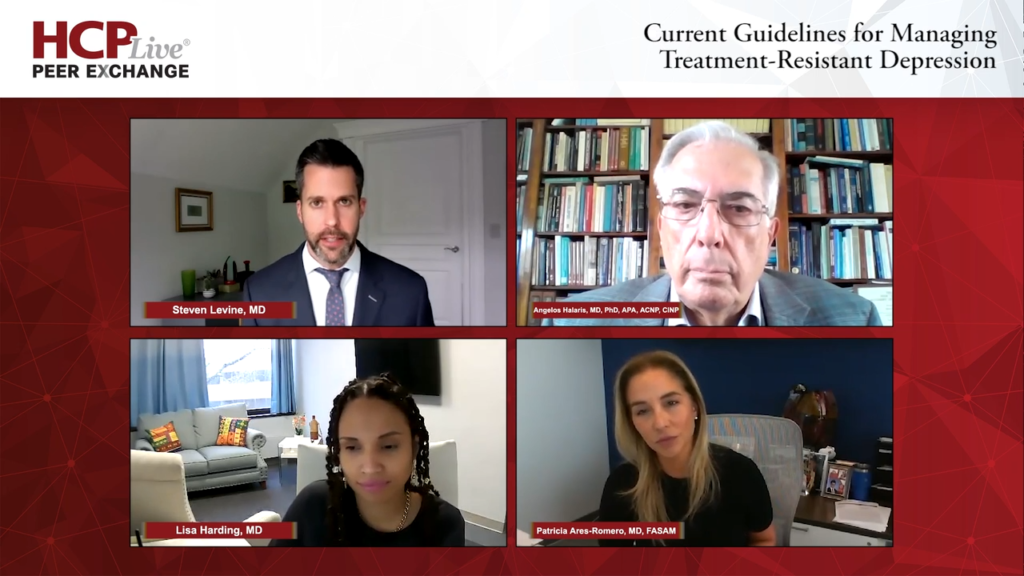Steven Levine, MD: With all those considerations and variables, the approach to treating depression is clearly quite complex. There are a lot of opportunities for treatment resistance. Patricia, would you like to speak to the impact on patients? How does this affect the quality of life of so many who are deemed treatment resistant?
Patricia Ares-Romero, MD, FASAM: Yes, we see it all the time. Our patients suffer when they’re not able to respond to the treatments they receive. Their quality of life is definitely affected, and it decreases. Productivity at work, family life, and social life are all aspects of their lives that are affected. More than that, we have an increased morbidity and mortality in patients with depression who are not treated. In the medical aspect, they’re experiencing much more pain. In the psychiatric realm, there’s an increase in suicidal ideation. Patients who are not treated adequately suffer. We see it every day in our practice.
Steven Levine, MD: Those are great points. It’s very sad to see this human toll of treatment-resistant depression. As far as standardization to approaching this very complex set of issues, the APA [American Psychiatric Association] published guidelines for the treatment of treatment-resistant depression in 2010. Lisa, could you speak to those guidelines?
Lisa Harding, MD: Yes. I first want to say that 2010 was a long time ago, and a lot has happened in the world of psychiatry since then. Just recently, in February 2020, the Journal of Affective Disorders published a new international consensus statement to try to replace the term treatment-resistant depression with difficult-to-treat depression for all the semantic and conceptual advantages in the way we express things in medicine and express ourselves to patients. That consensus statement in 2010 was looked at again in 2015. In 2015, they agreed on it again. In commenting on it in general, as a scope on the section where they spoke about the scope of practice, where these modalities can be chosen, with esketamine gaining ground and getting FDA approval in 2019, and now with the MDFI indication, this paper can be revisited in those 2 aspects to give psychiatrists better guidelines to practice within.
Steven Levine, MD: Great point. If I’m hearing you correctly, we can benefit from not only a better definition of the people we’re working with, which may better describe why they’re not benefiting from current treatments, but also updated guidelines to reflect that.
Lisa Harding, MD: Absolutely. That’s where it lies. We are moving toward integrative care. To do that, we really need to do integrative care. Our guidelines should reflect that. We have a pretty good task force. A couple of new papers have been published that are definitely moving us toward that.
Steven Levine, MD: Thank you for watching this HCPLive® Peer Exchange. If you enjoyed the content, please subscribe to our e-newsletters to receive upcoming Peer Exchanges and other great content right in your in-box.
Transcript Edited for Clarity
